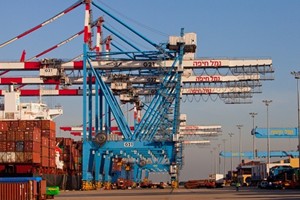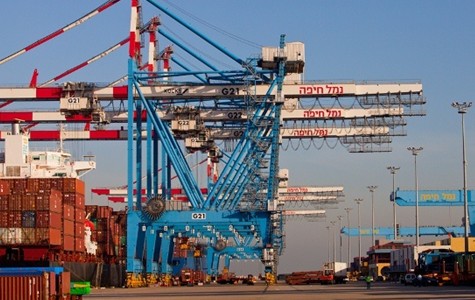
The neo-liberal government has announced that it plans to turn to the High Court of Justice against last Monday’s decision by the National Labor Court ordering the government to freeze for 30 days the tenders for the privatization of new ports. National Labor Court Vice President Yigal Plitman, Judge Amiram Rabinovich, and Judge Ronit Rosenfeld ordered the government to hold intensive negotiations with the Histadrut (General Federation of Labor in Israel), which for its part agreed not to strike the ports, even as the judges dismissed the argument that the cause of the strike was illegal. The judges said that the ports workers had legitimate grounds for a strike, both in view of the government’s conduct and in view of their reasonable concern that building the new ports unilaterally, at least under the present format, was liable to harm the current workers and their job security. The parties have to notify the court of progress in the talks by August 29, and no unilateral actions will be allowed before a new court decision.

The port of Haifa (Photo: Israel Ports Authority)
“The government is of course allowed to decide on the construction of private ports at Ashdod and Haifa,” wrote the judges. “The government is not allowed to change overnight the arrangement for ports reform, in dialogue with the Histadrut under a certain structure, and with one thrust to cut off the existing dialogue and unilaterally decide to head in the opposite direction. The government’s conduct shows bad faith toward the Histadrut.”
During the hearing, the judges sharply criticized the government’s representative, Adv. Yael Bar-Lev, who argued that the party authorized to negotiate the employees’ terms was the Director of Wages at the Ministry of Finance, not the Budget Director who drew up the draft agreement under discussion. The judges dismissed the state’s argument that the dialogue with the Histadrut should have covered only job security, and they elaborated on the possible consequences of items appearing in the tenders: the depth of the piers, the types of cranes, and whether the existing ports would be upgraded to compete on an equal basis against the new ports.
Related:
International transport workers federation votes unanimously to support Israeli port workers
Court to hear arguments on port privatization legality


